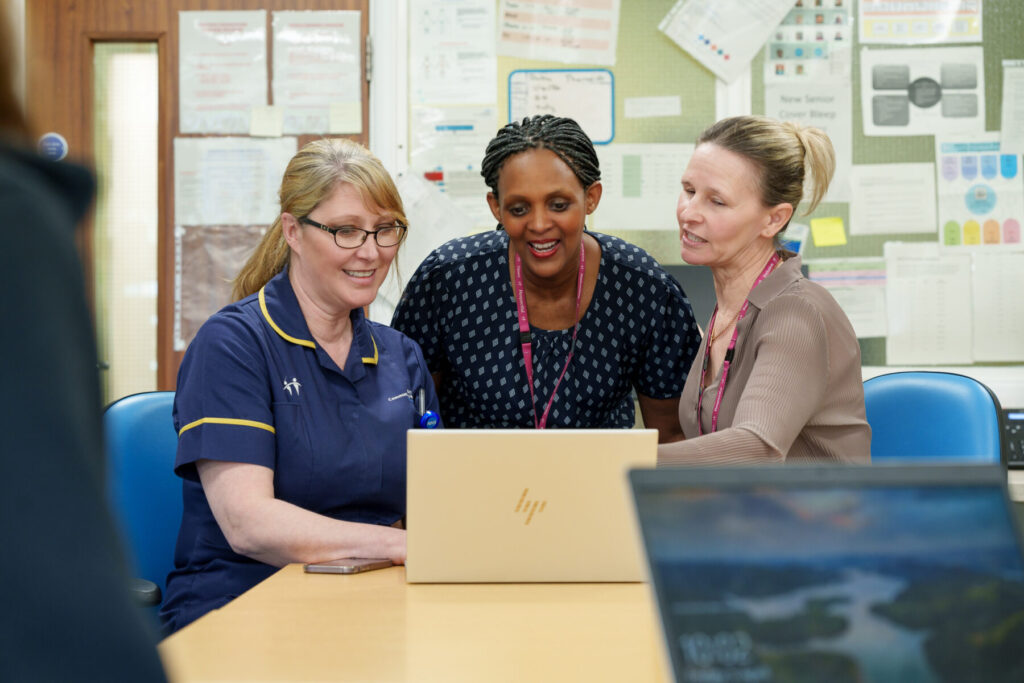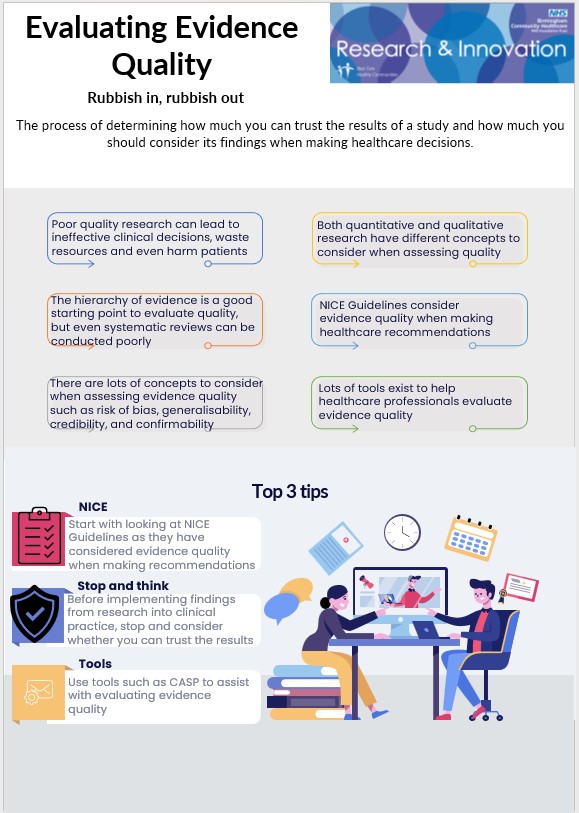Understanding how to evaluate the quality of the evidence base is crucial to choosing the most appropriate and up to date approach to clinical care in your specialty. It means knowing how and where to look for the evidence and then once you have the evidence, how to decide whether it is ‘robust’ or of sufficient quality that you can be confident that the findings are accurate. Only then can you be sure that the recommendations are safe to apply to your area.
Summarise what the user of CIPI should learn in this section
By watching the videos and reading the contents of the page you will understand:
- The nature and types of evidence
- The Hierarchy of evidence
- Where to look for evidence e.g. literature searching
- Understanding and identifying sources of bias
- How to choose and use a quality appraisal tool

How to complete this stage at BCHC
In order to learn about the state of existing knowledge about a specific intervention you could:
- Search the Knowledge Database held by the BCHC Library (Smallwood Library) to see if any research, service evaluation or audit has been carried out in the area of your interest http://nww.bhamcommunity.nhs.uk/about-us/divisions-and-directorates/medical-directorate/library-services/knowledge-database/
- You can also contact the Library team (smallwood.library@nhs.net)
- Search the Cochrane database to see if a review has already been done on your topic: https://www.cochranelibrary.com/search
- Approach the R&I team and ask if they can recommend someone who could facilitate a Critical Appraisal Topic (CAT) in your area for a group of you bchc.ri-info@nhs.net
- You could access library training on literature searching or critical appraisal: http://nww.bhamcommunity.nhs.uk/about-us/divisions-and-directorates/medical-directorate/library-services/information-skills-training/
- R&I team may also be able to put you in touch with the academics that work with them to support early stage researchers in the Trust
- With your managers support attend a module at a local university (contact the R&I team for this option).
 Click Here To Download
Click Here To Download